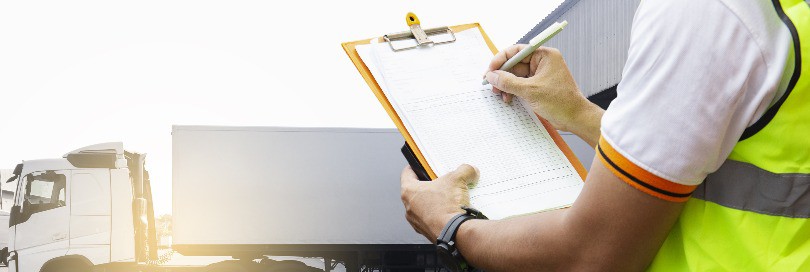- Topic: risk management
What is your risk profile with customs?
This article looks at how your business activities, trading relationships, internal controls, and interactions with customs and other authorities can impact your risk assessment and, in turn, … the extent of customs controls. It also offers practical insights into how companies can lower their customs risk profile and reduce the level of scrutiny customs authorities apply to their operations.
Boryana Peycheva
What is your risk profile with customs?
This article looks at how your business activities, trading relationships, internal controls, and interactions with customs and other authorities can impact your risk assessment and, in turn, the extent of customs controls. It also offers practical insights into how companies can lower their customs risk profile and reduce the level of scrutiny customs authorities apply to their operations.
Boryana Peycheva
Customs compliance and awareness amongst traders
It would seem that customs compliance is one of the most complex and pressing issues for all companies and individuals involved in global trade. But is this really the case? Is there a widespread … understanding of how important it is to be aware of customs legislation and regulations and to keep up to date with the frequent changes and innovations? This question was discussed by experts from the EU, the UK, Brazil, Israel, Pakistan and Côte d'Ivoire at the 23rd Author's Meeting. The discussion revealed that many problems hindering customs compliance are similar in many countries. We invite you to read an overview of this discussion below.
Customs compliance and awareness amongst traders
It would seem that customs compliance is one of the most complex and pressing issues for all companies and individuals involved in global trade. But is this really the case? Is there a widespread understanding of how important it is to be aware of customs legislation and regulations and to keep up to date with the frequent changes and innovations? This question was discussed by experts from the EU, the UK, Brazil, Israel, Pakistan and Côte d'Ivoire at the 23rd Author's Meeting. The discussion revealed that many problems hindering customs compliance are similar in many countries. We invite you to read an overview of this discussion below.
Customs controls and frontier management: a cybernetic approach to analysis of the EU problem
In the light of present-day security concerns, customs controls are an area of significant importance as a means of national security as well as the economic defence and security of the nation-state … or supranational blocks. Although this is a general issue of complex systems, in this article, the problem of control in EU, specifically indicated in Special Report of the European Court Of Auditors, is addressed. The problem is being ignored for several years already. This unaddressed problem indicates another issue, even more important – the defective control mechanism in EU, which fails to recognize critical issues and fails to initiate the corrective actions by taking responsibility and by claiming the ownership of the problem.
Mark Rowbotham
Customs controls and frontier management: a cybernetic approach to analysis of the EU problem
In the light of present-day security concerns, customs controls are an area of significant importance as a means of national security as well as the economic defence and security of the nation-state or supranational blocks. Although this is a general issue of complex systems, in this article, the problem of control in EU, specifically indicated in Special Report of the European Court Of Auditors, is addressed. The problem is being ignored for several years already. This unaddressed problem indicates another issue, even more important – the defective control mechanism in EU, which fails to recognize critical issues and fails to initiate the corrective actions by taking responsibility and by claiming the ownership of the problem.
Mark Rowbotham
DAP Incoterm and imports
The Incoterms book addresses in the introduction the situation where the two most extreme cases, EXW and DDP, may not be the best choice. The reason is that the buyer or seller has to fulfil … customs formalities in “foreign” countries. If they can – that’s fine. If not, it’s better to use another term.
Bert Van Leeuwen
DAP Incoterm and imports
The Incoterms book addresses in the introduction the situation where the two most extreme cases, EXW and DDP, may not be the best choice. The reason is that the buyer or seller has to fulfil customs formalities in “foreign” countries. If they can – that’s fine. If not, it’s better to use another term.
Bert Van Leeuwen

Comments (0)
To post a comment you need to
or